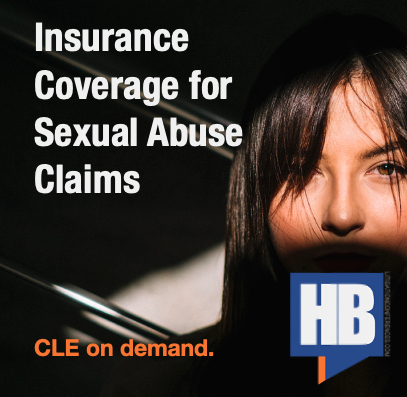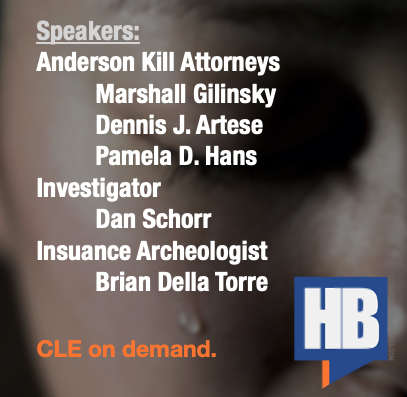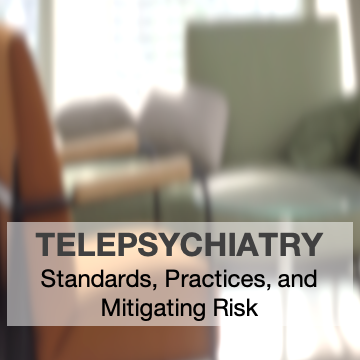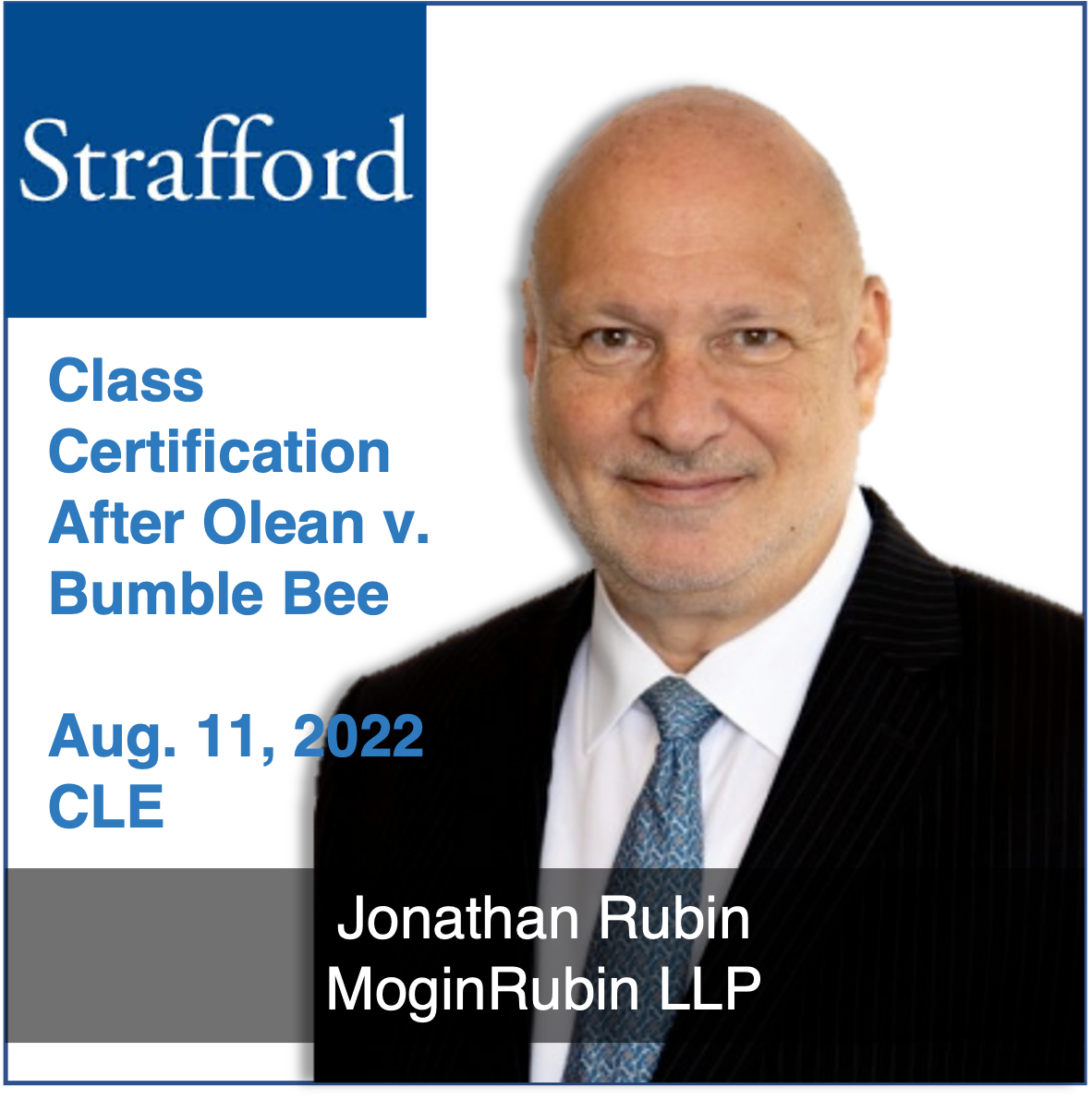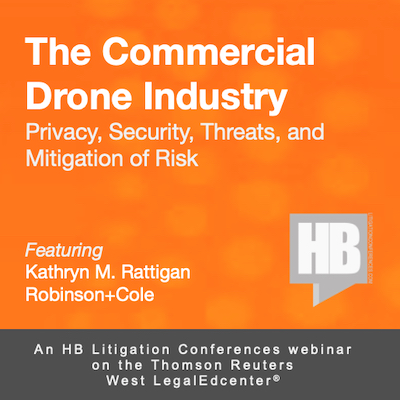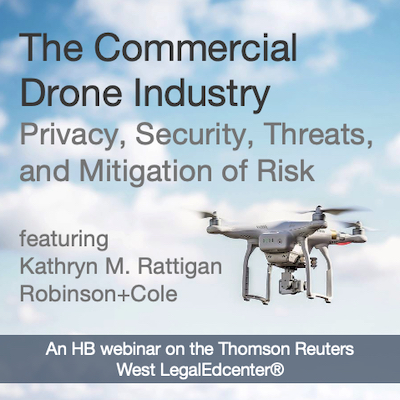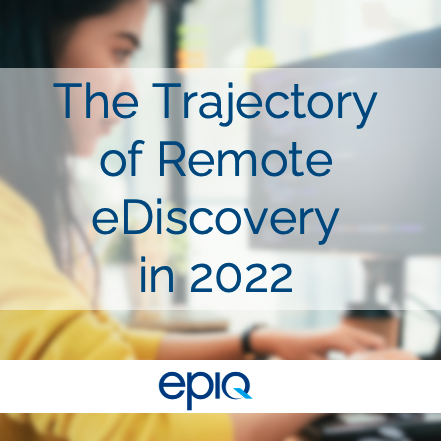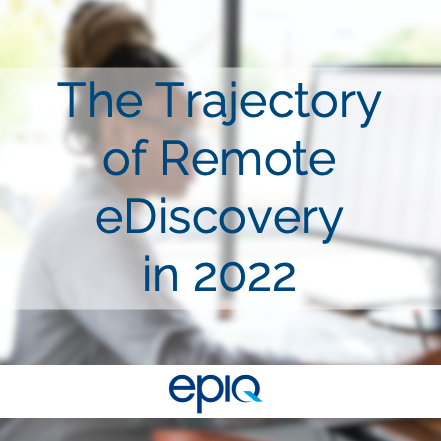By Kim Lavin
Manager of Research Services
Verus LLC
klavin@verusllc.com
609-466-0427
Progress of Roundup Settlement in Question
Judge Would Likely Not Have Agreed to a Stay Had He Known About the Contingency
On August 27, plaintiffs’ counsel in the multi-district litigation involving Monsanto and its widely used weed killer Roundup, advised the court that parent company Bayer AG appeared to be going back on the settlement agreement announced in June. At that time, the company had agreed to settle about 75% of the 125,000 claims filed by plaintiffs alleging that their non-Hodgkin’s lymphoma was linked to Roundup use; the settlement was for an estimated $10 billion.
At the hearing, Judge Vince Chhabria advised that he had received confidential letters from a number of plaintiffs’ counsel with cases pending in the MDL who were concerned that Bayer AG was going back on the settlement, noting that the company had terminated settlement term sheets and refused to execute master service agreements that would finalize their settlements; Bayer conceded that there were currently no final agreements.
Bayer did advise Judge Chhabria that about 667 of the cases currently pending in the MDL had been resolved, a figure that the judge noted was only a fraction of the 4,000 currently filed. The judge also pointed to Bayer’s June 24 announcement of the settlement, stating that he had taken “all of that to mean the MDL is settled.” He indicated that he would likely not have agreed to a 60-day stay of the litigation had he known that the larger settlement was contingent on his approval of a separate class action settlement for $1.25 billion, designed to resolve any future Roundup cases. The judge then advised the parties that although he would not lift the current stay, he would not extend it, expressing concerns that it was being used by the parties to manipulate the settlement talks.
Sexual Abuse Litigation and Insurance Coverage
Insurance Coverage for Sexual Abuse Claims Strategies | Response | Insurance Archeology CLE OnDemand Webinar Sexual abuse claims – such as those involving the Catholic Church and the Boy Scouts of America – have resulted in verdicts and settlements in the tens and hundreds of millions of dollars. The Catholic church alone has paid billions to resolve claims. Verdicts in cases involving adult victims are typically lower than those involving children and teens. A December 2021 $44 million verdict to a Texas woman who was raped at a Hilton Hotel in Houston could signal that juries may be more open to larger awards in such cases. While rapists and abusers face accountability under criminal law (and sometimes under civil law as well), businesses and institutions of all shapes and sizes are increasingly finding themselves confronting claims that they bear some of the responsibility for instances of sexual molestation, abuse and harassment. Several standard types of liability insurance provide coverage for such claims. In this webinar the panel discusses the elements of this coverage and the sensitive aspects of such claims. If you answer yes to any of these questions, this webinar is for you: Is your organization or your clients at risk of facing sexual abuse accusations? Would your organization or your client be insured if sued for sexual abuse? Is your organization or client uncertain as to where their insurance policies are? HB CLE on West LegalEdcenter Get CLE on emerging issues in litigation produced by HB and distributed via the West LegalEdcenter. Courses are available as part of your subscription to the platform. They are also available for individual purchase. Go to West LegalEdcenter Library CLE OnDemand Webinar: Property Insurance Coverage for Emerging Risk of Underground Climate Change w/Artese Podcast 1 of 2 series: Insurance Coverage with Dr. Jaana Pietari and Jim Fenstermacher and Litigation with Bob Chesler. Podcast 2 of 2 series: PFAS Insurance Coverage with Robert D. Chesler [...]
Lien Resolution: Government & Private Plans Get Aggressive (Against Attorneys)
Includes Nearly 75 minutes of insights from experienced professionals. CLE credit: 1+ (subject to bar rules). For CLE questions: CLE@LitigationConference.com The complete Power Point presentation. Continued access to the complete recording for later use. Answers to your questions via email to the presenters or write to HB and we will be sure to contact the speakers. What can you do to settle personal injury suits cleanly and avoid costly litigation and penalties? What recent cases can inform you about protecting your settlements and, as attorneys, yourselves, from post-settlement federal lawsuits? How can your firm set itself up to meet government expectations? What role might experts play in navigating these pitfalls? Medicare Advantage (42 USC § 1395w-22) Federal Medical Care Recovery Act (FMCRA) (42 USC § 2651) Armed Forces Act (10 USC §1095) Veterans’ Benefits (38 USC §1729) Third-Party Collection Rules (32 CFR 537.24; 38 CFR 17.101, etc.) Set-Asides under the Medicare Secondary Payer Act (42 USC § 1395y(b)(2)] On Demand Registration Lien Resolution Government & Private Plans Get Aggressive (Against Attorneys!) On Demand | Recorded September 2020 It is increasingly common these days. Personal injury attorneys settle a case, only to find themselves sued by a U.S. Attorney for failing to reimburse Medicare for conditional payments as required by the Medicare Secondary Payer Act. In some cases the attorney may be required to pay fines in addition to the reimbursements and interest, a costly proposition. Are you up to speed on issues surrounding Medicare Advantage, TRICARE, veterans’ claims, and Medicare set-asides? Join nationally recognized healthcare lien and resolution expert Franklin P. Solomon and go-to lien resolution provider Brett Newman as they offer a practical, in-depth CLE presentation. Franklin P. Solomon, Esq. Attorney & Founder, Solomon Law Firm A graduate of Rutgers University School of Law at Camden, Franklin Solomon is based in Cherry Hill, NJ, with a practice focused on evaluation, litigation and resolution of healthcare “liens” and reimbursement claims. Mr. Solomon represents personal injury victims and their attorneys [...]
Telepsychiatry: Mitigating the Risks
REGISTER Registration Includes Nearly 90 minutes of insights from experienced professionals. CLE credit: 1+ (subject to bar rules). For CLE questions: CLE@LitigationConference.com The complete Power Point presentation. Continued access to the complete recording for later use. Answers to your questions via email to the presenters or write to HB and we will be sure to contact the speakers. Understand the risks associated with telepsychiatry and how to manage them. Telemedicine has emerged as an important solution for healthcare in general and psychiatric medicine specifically during the current global pandemic. Remote access for sub-practices including addiction counseling have been commonly used. Our panel of psychiatric professionals who have served as expert witnesses and attorneys who counsel and represent physicians have prepared a 90-minute session to share insights with attorneys, physicians, healthcare providers, risk professionals, and more. Agenda Examining procedures and best practices that exist for ensuring confidentiality in a telemedicine practice How do you draft a telepsychiatric consent form? What is the emerging standard of care for telemedicine? Will the standard of care for telemedicine become a national standard? (Should it?) Review the case law addressing telemedicine or telepsychiatry How do the HIPAA regulations and HITECH privacy laws impact telemedicine? How have the HIPAA regulations and HITECH privacy laws been relaxed during the pandemic? Will the relaxed HIPAA and HITECH regulations impacting telemedicine continue past the pandemic? Which technical platforms are preferred? Which ones to avoid? Panelists Mark Levy, M.D., Medical Director at fpamed David Kan, M.D., UCSF Psychiatry Department and the California Society for Substance Abuse Medicine Ayesha Ashai, M.D., associated with fpamed Stephen M. Fatum, J.D., Partner, Barnes & Thornburg LLP Angela W. Russell, J.D., Partner, Wilson Elser Moskowitz Edelman & Dicker LLP Meet our physician and attorney panelists. Mark Levy MD Medical Director fpamed Dr. Levy is a graduate of Columbia College (A.B. 1967) and the Columbia University College of Physicians and Surgeons (M.D. 1971) in New York. He is a Physician [...]
Class Certification After Olean v. Bumble Bee with Jonathan Rubin of MoginRubin LLP
Featured Speaker Jonathan focuses his practice exclusively on antitrust and competition law and policy. As a litigator, he has led trial teams in major antitrust cases in courts throughout the country. As a thought-leader in competition law, he has published in influential academic journals and has spoken to numerous professional groups, including the Directorate General for Competition of the European Commission, the Antitrust Section of the American Bar Association, the University of Wisconsin, and the American Antitrust Institute. Jonathan has also made several appearances before congressional committees. More About Rubin For more information please email Tom Hagy Explore more from MoginRubin LLP! Blog: Emboldened by New Resources and Expanded Authority, Feds Continue 10-Year Look Back at Chinese Investment. By Dan Mogin, Jonathan Rubin, Jennifer Oliver, and Timothy LaComb. List OnDemand CLE Webinar: The Antitrust Case Against Google. Dan Mogin, Jonathan Rubin, Jennifer Oliver, Timothy LaComb, John Newman, Dr. Alan Grant Blog: FTC’s Case Against Facebook Will Test the Flexibility of U.S. Antitrust Law.Authors: Jonathan Rubin and Jennifer Oliver, MoginRubin LLP Blog: Full Ninth Circuit Removes Unwarranted Hurdles to Class Certification. Journal: Policy Derailed: Can U.S. Antitrust Policy Toward Standard Essential Patents Get Back on Track by Jonathan Rubin Webinar: Class Certification After Olean v. Bumble Bee with Jonathan Rubin, James Bogan lll, Jonathan Cohn, Bradley Hamburger. Journal: FTC v. Amazon: Market Definitions and Section 5 of the FTC Act Podcast: Algorithmic Software Facilitated Price Fixing with Jonathan Rubin Plus, additional insights from the MoginRubin Blog. Class Certification After Olean v. Bumble Bee Expert Testimony, Uninjured Class Members, and Article III Standing This CLE course will discuss the ramifications arising from the Ninth Circuit’s en banc decision in Olean Wholesale Grocery v. Bumble Bee Foods, 31 F.4th 651 (9th Cir. 2022) (en banc), addressing numerous important class certification issues. The program will address Olean’s critical holdings regarding the evidentiary burden under Rule 23, how expert testimony should be assessed at the class certification stage, and the relevance of injury and Article III standing to assessing Rule 23’s predominance requirement and [...]
The Commercial Drone Industry: Privacy, Security, Threats, and Mitigation of Risk
HB presents a CLE-eligible webinar Now on-demand at the West LegalEdcenter THE COMMERCIAL DRONE INDUSTRY Privacy, Security, Threats, and Mitigation of Risk Drones have become an increasingly valuable tool for businesses of all types and sizes. Drones are already being used in many applications, but more will certainly arise as the technology advances. This means that certain risks, like cyber threats, will also continue to present themselves. Protecting the transmission and storage of data collected through drones is critical. Unfortunately, security usually comes as an afterthought. The drone industry is part of the aviation industry, which, based on its knowledge, keeps safety as a number one concern. Part of that safety is having proper protection for your systems, including security as a fundamental design principle. Take this webinar to gain insights on the topics listed below, and shared by an attorney who practices on the cutting-edge of this evolving technology. Topics: Defining drones. Current and future applications. FAA Modernization and Reform Act of 2012. FAA Part 107 Regulations and waivers. Resources, e.g. the FAA Drone Zone and LAANC Portal. Penalties for violations. Privacy implications. Drones as weapons. Vulnerability to cyber attacks. Take it now! What you get: 1+ CLE credits (subject to bar rules). Insights from an experienced professional who specializes in this area of the law. The complete PowerPoint presentation. Continued access to the complete recording for later use. Answers to your questions. Fee: No additional charge to subscribers to the West LegalEdcenter. Non-subscribers may take the course for $170. Meet the Speaker Kathryn Rattigan Robinson & Cole LLP Kathryn Rattigan is a member of the firm's Business Litigation Group and Data Privacy + Cybersecurity Team. She advises clients on data privacy and security, cybersecurity, and compliance with related state and federal laws. She assists clients in assessing risks related to technology and software contracts, as well as with compliance-related issues with outsourcing and [...]
The Trajectory of Remote eDiscovery Review in 2022
Epiq presents a CLE-eligible webinar The Trajectory of Remote eDiscovery in 2022 Practical guidelines for planning the eDiscovery program for your firm or legal department based on the latest insights. Join legal industry analyst Ari Kaplan, Eric Crawley, Epiq’s managing director for global advanced solutions, Seth Eichenholtz, Director of eDiscovery at Mastercard, and Lora Ramsey, eDiscovery Manager at Walmart for a discussion about the current state of electronic discovery within corporate legal departments and the future of remote options in a post-pandemic environment. Kaplan will reveal – and the panel will discuss – findings from the Epiq-commissioned report based on the perspectives of 30 leading corporate legal eDiscovery professionals about the challenges, tactics, and best practices fueling change in this sector. Eighty-seven percent of the respondents reported that they handle some document review processes with support from their outside counsel. Sixty-three percent also utilize alternative legal services providers (ALSPs). With the near-universal deployment of remote reviewers during the pandemic, only 10 percent of the respondents reported seeing disadvantages. For many organizations, the document review process involves a combination of resources and is often driven by cost and risk. One respondent told us: “We want the lowest cost resource that offers the highest quality work, which is not always the outside law firm.” If you answer yes to any of these questions, this webinar is for you: How can my firm make the most informed decisions about our document review processes given the new wide acceptance of remote work? Should our litigation and investigative teams work with alternative legal service providers to conduct remote review? What are the benefits? What do our clients, namely corporate e-discovery professionals, think about remote review and the role of law firms in the process? On-Demand Registration What you get: 1 CLE credit (subject to bar rules). CLE codes will be announced. For questions write to CLE@LitigationConferences.com. 60 minutes of insights from experienced professionals. The complete PowerPoint presentation. Continued access to the complete [...]


